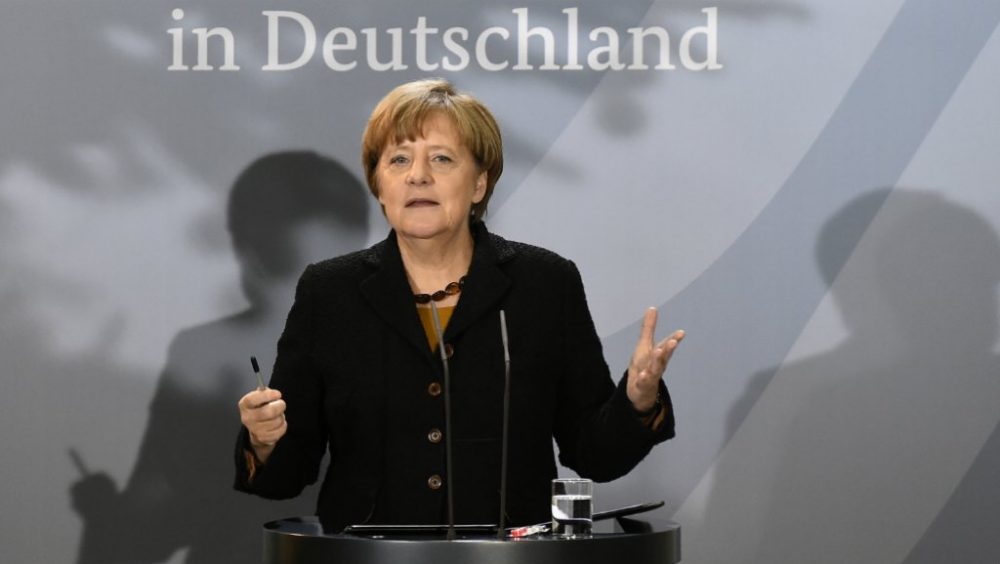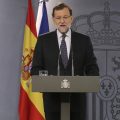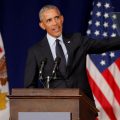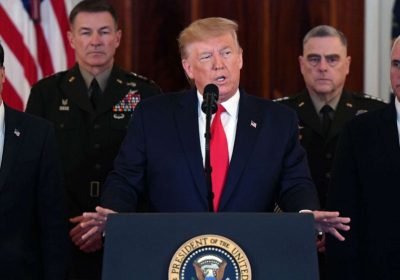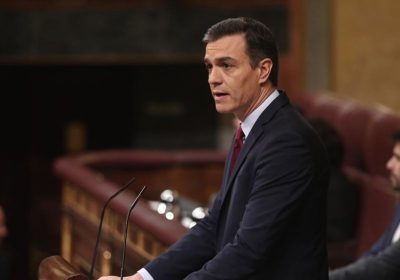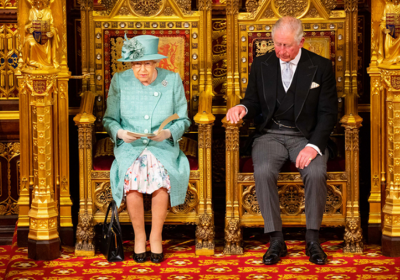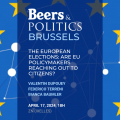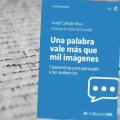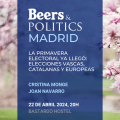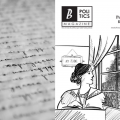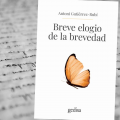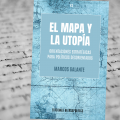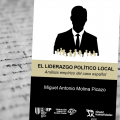ANGELA MERKEL
Professor Turner,
Professor Mlynek,
Professor Eissenhauer,
Excellencies,
Ladies and gentlemen,
Thinking over, rethinking, thinking ahead – that’s what you’ve come here to do. The monumental installation by David Chipperfield, to whom I’d like to extend a very warm welcome, is a source of inspiration for this. I welcome all of you to Berlin, this city which has written history.
The Falling Walls Conference brings together the past and the future in a very special way. It combines the commemoration of the fall of the Berlin Wall 25 years ago with a look ahead at which frontiers can be overcome today and tomorrow. It combines experiences and the hope of a good, indeed a better, life in future – a hope fuelled in particular by science and research. The Falling Walls Conference thus focuses attention on a key prerequisite and driving force of human action. This was, is and will remain freedom.
Tomorrow we will be celebrating the 25th anniversary of the fall of the Berlin Wall. This day brings home to us that the human urge for freedom cannot be suppressed for ever. In the course of that fateful year, 1989, more and more East Germans overcame their fear of state repression and harassment. They exposed the fraud at the local elections. They gathered in churches to discuss openly. They founded civil rights movements and took to the streets to voice their demands.
On 7 October 1989, the SED grandees celebrated the 40th anniversary of the GDR with the customary pomp. At the same time, they ordered the security forces to harass people who were demonstrating peacefully. Despite this, just two days later tens of thousands of people gathered in Leipzig for the Monday demonstration. A line had thus been crossed. There was no going back. More and more people showed civic courage. It’s thanks to their courage that the barriers at the border between the two German states were finally opened.
In contrast to 1953 in East Germany, 1956 in Hungary, 1968 in Czechoslovakia or 1981 in Poland, the longing for freedom and self-determination could no longer be crushed; neither in East Germany nor anywhere else. The human need to be able to take one’s destiny into one’s own hands turned the cruel division of Europe and the Cold War into a thing of the past. Today around 500 million people from 28 member countries live within the European Union. They live together in peace and freedom. Others would like to become part of our community. Our coming together under one roof is the forward-looking answer to the antagonism of former days.
The lack of communication, the boundless distrust and and cold confidence in military logic which prevailed one hundred years ago when the First World War broke out have become inconceivable. We are also remembering this event in 2014, as well as the outbreak of the Second World War 75 years ago. Both wars left many millions dead – both soldiers and civilians. They reduced our continent to rubble. They left a trail of unspeakable horror. We Germans will never forget that it was our country which broke all the rules of humanity during the National Socialist era. Due to the Shoah, that ultimate betrayal of all civilised values, Germany has an ever-lasting responsibility.
After all these horrors, Europe was not yet able to come together. The Cold War followed. Germany, Europe and the world were divided into two blocs. The wall which cut Berlin in two symbolised this.
25 years ago, in the days leading up to 9 November 1989, the growing protest movement may have led some to think it was vaguely possible that the Wall could fall. However, virtually no one could have imagined that it would only be a matter of hours. It is certainly possible to see a parallel to science in this. In this field, too, some things emerge with ill-defined outlines. But when precisely the breakthrough will happen and – above all – what it will look like exactly and what new possibilities it will offer, sometimes becomes apparent quite unexpectedly.
Freedom is a vital prerequisite and engine for this. Freedom opens up new worlds. Anyone who can think and research freely can better understand the bigger picture, can recognise new paths and is free to embark upon them. Or as the French author André Gide said, “One doesn’t discover new lands without consenting to lose sight of the shore for a very long time.†Yes, it requires courage to gain freedom. And it also requires courage to take advantage of freedom. The Falling Walls Conference wants to give us courage, the courage to overcome the walls around current thinking, to cut lanes and open up new perspectives.
This year’s Nobel Prize Winner for Chemistry gave us a wonderful example which shows that what is seemingly insurmountable can be overcome after all. I would like to take this opportunity to congratulate Professor Stefan Hell most warmly on his great success. His research focuses on nanobiophotonics. Thanks to his pioneering work, detailed resolutions which used to be considered impossible are now possible in the field of microscopy. Basically, he made visible what had previously been invisible. And this has quite literally opened up new and in-depth insights into living cells. This helps to better understand the causes of diseases and, ultimately, to devise targeted treatments.
Health research in particular illustrates very clearly how the pace of scientific advance can affect the standard of living. That’s also the reason why great hopes are often placed in science. To ensure that many of these hopes can be fulfilled, we have made the promotion of science a political focus – in the health field as well as in many other spheres.
We have devoted greater attention in health care to previously neglected diseases caused by poverty. For especially in the field of health research, developed countries like Germany with a strong research record have an international responsibility. That’s why we made this topic one of the focuses of our G7 Presidency.
When I say that, I’m also thinking of ebola, which has hit many parts of West Africa. German scientists are helping to find ways and means of halting the spread of this disease. However, we have to admit that we could probably already have a vaccine if we’d paid enough attention to this disease before the epidemic took hold.
Ladies and gentlemen, there is much I could tell you about what the Federal Government is doing in cooperation with the Länder to steadily advance science. However, rather than go into details, I would just like to say that we are always guided by the idea that only by breaking new ground, only if we are prepared to leave well-trodden paths and encourage people to do this, will we be able to maintain and increase our prosperity.
Ladies and gentlemen, the Falling Walls Conference undoubtedly also offers an excellent opportunity to showcase Germany’s scientific sector. I make no secret of the fact that we’d be delighted if even more top researchers from abroad were to come to Germany to research. Our universities and non-university research institutions have much to offer. We won’t content ourselves with cultivating our reputation as a country which traditionally produces poets and thinkers. Although we’re meeting in a museum today, our intention is not to merely look back. We want to gain a reputation as a country of pioneering thinkers.
For we know that innovation made in Germany as an outstanding seal of quality would be inconceivable without freedom. This also applies to vocational training. In the former GDR, for example, many were not allowed to study even though they were talented. A free state, on the other hand, fosters individual interests and abilities.
We welcome lateral thinkers, people who pursue new avenues. Everyone should have an opportunity, and everyone should take advantage of this opportunity. That’s what makes a country humane. And that’s what makes a country enduringly successful. That will remain the aim and yardstick of forward-looking, forward-thinking policies. In addition, there is a host of initiatives in which people who want to explore new paths, who want to overcome barriers, can come together. The Falling Walls Conference is one of these.
I wish you not only a lovely evening but also fruitful discussions tomorrow. Once again, I bid a very warm welcome to each and everyone of you.

